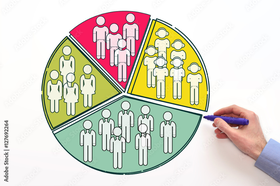AdRoll vs. MNTN
How do AdRoll and MNTN compare when it comes to features, pricing, pros, cons, and use cases? We’ve got the answers.
Read More
With most site visitors leaving your store before converting, ecommerce marketing strategies must incorporate dynamic retargeting to be fully effective. By capturing those lost opportunities and shortening the conversion time, they ensure your brand remains at the forefront of consumer minds. Wherever they spend time online — whether that’s their favorite websites, social media platforms, or email providers — your ads will follow, reminding them of their favorite items and introducing similar ones.
The results speak for themselves: Not only do dynamic retargeting ads achieve 2x higher click-through-rates, but they also save you money with a 50% lower cost-per-acquisition compared to static ads.
Ready to get started? Make sure your campaigns have the most significant impact possible by following our 11 retargeting best practices below.
Dynamic messaging in your ads allow you to target audiences at any stage of the customer journey, including repeat customers. For example, you can show cart abandoners a dynamic ad featuring items they left behind that include an offer like free shipping. Alternatively, entice repeat customers with items that complement their previous purchases, as well as an offer to join your loyalty program with a 10% discount.
The quality, content, and dimensions of your images are critical to the effectiveness of your campaign. Here are some tips to keep in mind:
Whenever possible, use professional product photos, as they draw eyes to your advertisement and message.
Focus attention on your product by using transparent backgrounds in product photos.
Use lifestyle images to help shoppers envision the product in use, which can move them one step closer to purchase.
Ensure that you use consistent photo dimensions and sizes to preserve a quality presentation across all ads.
Consider specific pages people visit as an indicator for their stage in the customer’s journey and tailor your ad messaging to that stage. If they only made it to the homepage, for example, an introductory message might appeal to them. Visiting the product page may indicate interest in some customer reviews and product features whereas anyone who added items to their cart may enjoy free shipping.
By segmenting your audience, you save money, time, and resources — all while building strong, loyal customer relationships.
Remember that brand awareness is an essential outcome of advertising and dynamic retargeting. Even if people don’t click on your ad, seeing your brand name over and over again builds familiarity and name recognition. When your prospect is ready to purchase, your company will be top-of-mind.
Your copy should be quick and easy to read. Focus on communicating benefits to your audience and appealing to their needs. Calls-to-action (CTAs) should also be brief and direct, such as “Shop Now!”, “Buy Now!”, and “Pre-Order Today.”
By maintaining a consistent brand aesthetic with both your website layout and advertising campaign, you’ll continue to appeal to your repeat customers the way you did during your first interaction. Bottom line: Don’t fix what’s not broken.
As people continue to see your ads across the web, various social platforms, and in their emails, the repetition can cause fatigue. And since the last thing you want to do is irritate your audience, create a negative association with your brand, or have people become numb to your advertisements and products, refresh your ad content — images, text, and CTAs — often, as well as consider setting frequency caps for all campaigns and ad sets.
It’s important to continue testing new strategies, CTAs, copy, and images to optimize your dynamic retargeting campaign, including:
A/B testing different buying incentives like discounts versus free shipping offers
Learning whether popular items or recently reviewed products lead to more clicks
Replacing product photos for lifestyle photos to see which engages audiences more
Native ads, which resemble the publication’s typical content but are actually paid for by an advertiser, are well-received by audiences because they aren’t perceived in the same way as traditional advertising. One study found that over 80% of consumers who read the news say that seeing ads within news content increases brand trust.
The same rules for display ads apply to native ads: The more engaging and compelling the ad is, the more likely it’ll appeal to your audience. Adding statistics and new information to your ad is an excellent way of increasing its value and relevance to the viewer.
Once you win a customer and they become excited about your brand, it’s important to consider their experience before you launch retargeting campaigns. Rather than bombarding them with immediate advertisements, wait a little while and let them enjoy your product so you can begin enticing them with similar or complementary products as soon as the time is right.
The last thing you want to do when you get a customer is lose them, so let them enjoy your product for a little before retargeting them.
If you follow the aforementioned 10 steps, your new and improved retargeting campaigns will outperform general display advertising efforts, boost brand affinity, and ensure your prospects become customers in no time flat.
But why make your job more difficult than it needs to be with tedious, manual advertising tasks? Instead, by implementing an automated and intelligent platform like AdRoll into your marketing strategy and campaigns, you can streamline your marketing operations, identify and reach visitors, build brand awareness, gather insights, create ads that match your goals, and grow and scale — quickly, effectively, and efficiently.
Ready to take it one step further and build out a retargeting strategy? Read more:
Last updated on June 18th, 2024.

